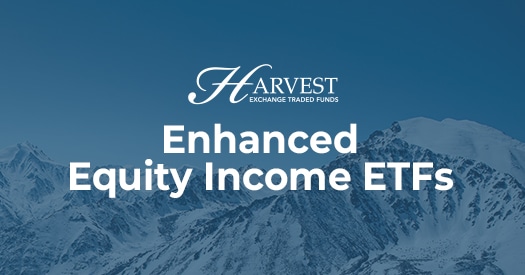By Harvest ETFs
A new study has painted a challenging picture of retirement in Canada. At the end of December, the National Institute on Ageing (NIA) at Toronto Metropolitan University released the results of their 2022 Ageing in Canada Survey. While the study found plenty of positives around social well-being, health & independence, and financial security—especially among Canadians aged 80+ already in retirement—the study highlighted how important retirement income is for Canadians approaching retirement age.
That is especially true for working Canadians over 50, of whom only 35% said they were in a financial position where they could afford to retire when they wanted.
Of the whole group surveyed, one third said they did not have the resources needed to cope with an unexpected event or loss. That number rose to nearly half (44%) for respondents aged 50-64.
Of the total group surveyed, around one quarter of the respondents claimed their current level of income was inadequate for their lifestyles. Among respondents aged 50-64, more than one third (37%) said their income was inadequate.
The whole survey drove home the need for retirement income. It found that respondents with inadequate income had overall worse quality results across the indicators of social well-being, financial security, and health & independence.
Retirement Income key to retirement confidence
The NIA study covered the multifaceted aspects of growing old in Canada, from financial security to social networks to healthcare and community support. It came with plenty of positive results, too, including a high degree of overall financial confidence and social engagement among Canadians aged 80+. However, income adequacy was seen as a key factor influencing how healthy, socially engaged, and confident older Canadians were.
Survey respondents with adequate income were far less likely to experience social isolation as they aged. They were more than twice as likely to report being satisfied with their social networks, friends, and families. They were even more likely to live an active, engaged lifestyle outside of their homes.
Across a range of key questions, like confidence in being able to remain at home, access to healthcare services, and even respondents’ overall feelings about growing older, those who reported adequate income fared consistently better than those who reported inadequate income.
While income is not the sole determinant of Canadians’ quality of life in retirement, it clearly plays a crucial role. The question is, where can retirees get an adequate income from?
A source of retirement income from equity ETF portfolios
While many Canadians in or approaching retirement, may consider their Canada Pension Plan benefits as a key source of income, the income paid by CPP is likely to be inadequate for most Canadians’ goals and lifestyles. Moreover, Canadians can maximize their CPP benefits by waiting until they turn 71 to claim them. If someone retires at 65 but wants to claim CPP at 71, there is a 6-year gap that will need to be filled.
Traditionally, retirees and pre-retirees relied on fixed income products such as bonds or GICs. Even though the yields on those products rose through much of 2022, in many cases they still pay out yields below the current rate of inflation. An adequate retirement income should surpass the rate of inflation.
Harvest Equity Income ETFs are built to pay high monthly cashflows to unitholders from portfolios of stocks. They focus on the biggest companies with dominant market shares and growth potential over the long-term. Those stocks are combined with a covered call option writing strategy to deliver monthly cashflow at rates typically above inflation.
Harvest ETFs also offers a suite of Enhanced Equity Income ETFs that add modest leverage to an underlying Equity Income ETF. They come with a slightly higher risk rating and pay typically higher annualized yields.
Both suites of ETFs pay high income while remaining exposed to some of the market growth potential of the companies they hold. While it is common for retirees to see their assets slowly deplete over time, these ETFs are designed to offer the opportunity for long-term growth while paying enough income to help support a retiree’s lifestyle.
The NIA study found that income is a key determinant of overall quality of life in retirement. Harvest Equity Income and Enhanced Equity Income ETFs are built to provide that income.













